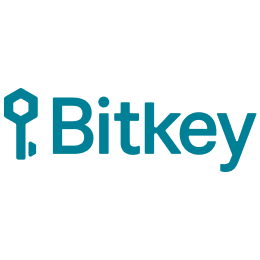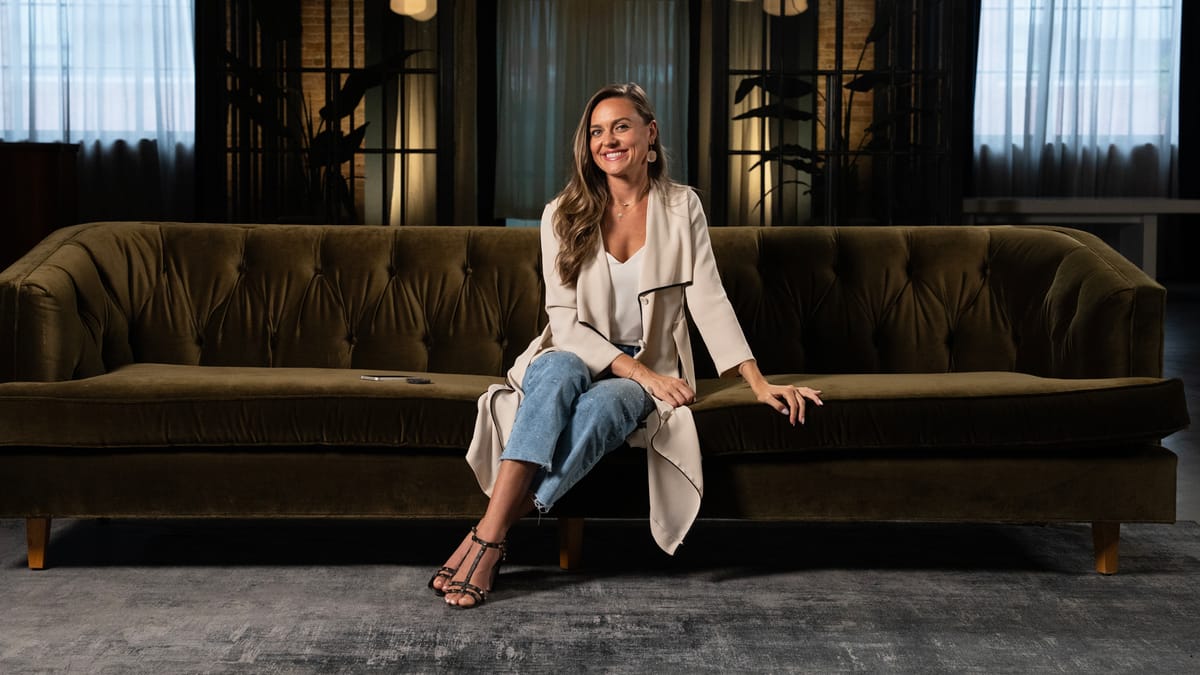Coin Stories host wants you to know that bitcoin is for everyone. (And you’re still very early.)
“Fix the money, fix the world” means a lot of things to a lot of people. For Natalie Brunell, host of Coin Stories and author of Bitcoin is for Everyone, it means more than a hedge against inflation, 24/7 cross-border payments, and censorship-resistance (but it probably means all of those things, too). Money that holds its value means a shift from short-term survival mode to the kind of long-term living that lets people take risks, start new ventures, and look forward to the future. It means equal access to everyone, and it might just be the key to a reset in the way people relate to each other. We sat down with Natalie to talk personal journey, new book, and her complicated relationship with the American Dream.
Can you tell me about yourself, your upbringing, your background? Who is Natalie Brunell?
Sure. So I'm a first generation immigrant. I was born in Poland and my family came to the United States when I was five years old in pursuit of the American dream.
My parents grew up under communism. The American dream was something core to their belief system—that we should have more opportunity and more freedom. That's why they sacrificed everything to come here. I watched them work hard during my childhood and that was shaping for me.
And then I went off to college and the great financial crisis hit and they lost everything.
They had been able to finally afford a home. The bubble popped and they had to file for bankruptcy. That was a transformational moment for me. It was the first time I lost hope in the American dream.
Can you say more? What do you mean, you lost hope in the American dream?
I felt maybe it doesn't exist, maybe it's not possible for us all to achieve it. And it made me feel the system has an injustice in it. That fueled my drive to become an investigative journalist. I wanted to expose corruption. I felt the system was broken and the institutions got bailed out at the expense of working class people like my family. At the time, I was blaming all of the symptoms, but not the core problem. I didn’t really connect the dots and understand that the money is broken until I learned about bitcoin in 2016 or 2017. And even then it was a years-long journey.
What were your initial impressions of bitcoin? How did your thinking evolve over time?
I dismissed it. I thought, it's digital, it could be hacked, it could be replicated, all the things that people believe when they first encounter it. And then someone gave me The Bitcoin Standard and that sent me down the rabbit hole.
Was there a line or a chapter that really made it click? Was there a moment where it all made sense or was it more of a slow burn?
I will never forget closing that book and thinking, why did I never learn this in school? I had no idea what money even was. I never thought about what money is, who issues it, does the supply matter? Why are things getting more expensive? We take for granted why prices go up. And do they have to? We accept inflation as a given.
When mainstream journalists cover bitcoin now, what do you think they miss? What do they not get?
I mean, I understand because I was there. You can't really appreciate bitcoin until you have the foundational understanding of how the system works and what's wrong with it. I think a lot of us can recognize the symptoms, but don't connect it to the money. A lot of people think that there are things that can't be changed: government issues money and things get more expensive every year, and just accept it. I think bitcoin makes you question all of that.
When I encounter journalists who are more negative about bitcoin, I try to meet them where they are. I do think that a lot of journalists speak negatively about bitcoin without doing all the homework. You should at least do the homework if you're going to speak out against it.
Where did the idea for Coin Stories come from?
When I was working as a journalist, I tried to report on bitcoin, but my beats were different so there wasn’t really the opportunity to do it justice.
I started the podcast as a hobby, to learn more and speak with as many people as I could about bitcoin. I saw it as a solution to all the problems that I had been reporting on and had experienced with my own family and I wanted to understand it better and share it with others. My podcast took off and found an audience and I reached a fork in the road: I could either continue as a journalist or take a chance on myself and start a media company. And I took a chance on myself and I'm grateful that I did.
You have a new book coming out, Bitcoin is for Everyone. If prospective readers get one thing out of it, what do you hope it would be?
It would be empowerment. People think bitcoin is technical, it's hard, we're late. And my message is: you're early. You can understand this, you can be empowered, you can change your life.
I think that, if we were all economically empowered, it would bring out the best in us in terms of how we treat one another. We would be more collaborative. We would be incentivized to work together more and to build together more and to create a better world for each other. The current fiat system pulls us apart and encourages the worst of our behavior, divides us, causes us to compare ourselves to one another. And it's an unfair system.
The book is really about what you can do and what we can do together. It envisions a better world for all of us.
A lot of things in the bitcoin space can get boiled down to a kind of sloganeering, and if you're not already bought in, it can be easy for some people to brush that stuff off. How does bitcoin get out of that space and appeal to folks who are maybe put off by kind of superficial, maybe over-simplistic “fix the money, fix the world”-level groupthink?
What we need most in bitcoin is more storytellers and communicators. I think the easiest way to grasp bitcoin is to identify the problem first, explain how we got there, and then it’s possible to appreciate bitcoin as the solution.
I remember, after my parents lost everything, I graduated into the recession. I was cutting my teeth as a reporter and trying to learn as fast as I could. And I noticed that a lot of people were feeling what my family was: everything was getting more expensive and income was never catching up to it. Through history, we've ping ponged back and forth between red and blue, but our debt has continued to rise and the average person's standard of living has deteriorated.
I think if we focused on actually fixing the money, and we created a system where you could not inflate the money supply, you couldn't change the monetary policy on a whim or because we sided with this version of politics versus another, and you couldn't manipulate it, that would be a system that would reward value through competition.
For people who are still skeptical, what do you say to help them see beyond hype and price charts?
I think it's healthy to be skeptical. If you're not skeptical, I’d be more concerned. Be skeptical, but take the time to learn. Don't be someone who didn't learn and dismisses something entirely.
If we look at history, every new technology faces resistance at first, but early adopters are almost always rewarded. I encourage people to realize that we are very early and they're not late.
The fact that a kid in a developing country has as much access to bitcoin as someone who works on Wall Street is incredible. You can't be in a developing country and acquire a fraction of a beachfront property in Miami, but you can acquire a fraction of a bitcoin. I think it's an empowering technology and I want people to take the time to learn about it before they dismiss it.
What do you think keeps people in ETFs or on exchange rather than holding their own keys in self-custody?
I think it's about convenience. And I feel people don't give themselves enough credit. In our system where we've outsourced everything, it's “trust someone else to do it. It'll be fine.” But taking a bit of responsibility is not a bad thing.
It's funny to me when people say “I could never take self custody.” This is one of the reasons why I love Bitkey. It says yes you can. It's not hard. Anyone can do it. There are solutions that exist where you don't even realize you're interacting with something technical. I mean, today, I drive my car every day, but I don't know how to put together an engine. I don't know everything about TCP/IP, but I use the internet every day. I think that, moving forward, bitcoin will have more tools and applications that make it easier to use it every day.
Watch Natalie’s Bitkey demo
Any last thoughts? What gives you hope that this is a real movement, that bitcoin and the bitcoin community is building something that will outlast us all?
The people in the space give me a lot of hope. I've seen bitcoin bring together people from all walks of life, all industries, all backgrounds, all ages. I've never seen a technology that empowers the person who is struggling and needs a lifeline as much as the person in the C-suite. When you send a transaction, bitcoin is blind to whether you're a billionaire or you're broke. And I think that's empowering for the average person: there is a tool that can't be politicized and can't be manipulated. I hope it gets embraced as the neutral tool for freedom that it is.
This interview was lightly edited for length and clarity. To learn more about Bitkey, visit bitkey.world. And for more from Natalie, check out talkingbitcoin.com.


